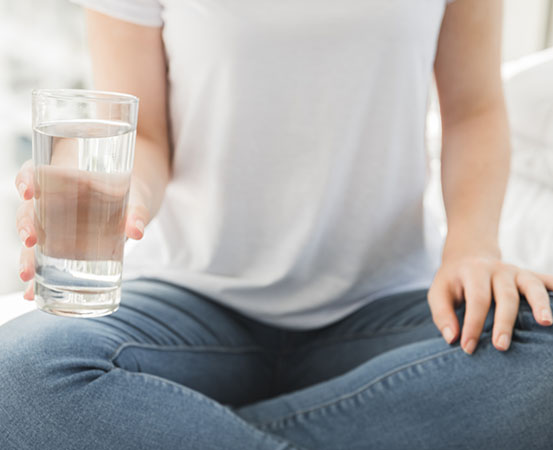
How much water should you drink each day? While the ‘eight glasses of water a day’ rule has held sway for a long time, is this quantification based on hard facts or is it merely an urban legend?
In July, a 35-year-old mother of two from Indiana, US, died of water toxicity. Ashley Summers had downed four bottles of water (about 1.9 litres) in a span of 20 minutes to beat the heat, according to her family. Water intoxication occurs when a person consumes water in excessive quantities in a short span of time.
In India, a 52-year-old from Hyderabad had a scare due to his water-consumption habits. Amit (name changed) had diabetes and hypertension. He was advised to drink lots of water to curb his frequent hunger pangs and shed some extra kilos. Amit drank seven to eight litres of water a day, consistently for three years, until one day he felt giddy and fell unconscious.
READ MORE
Dos and don’ts of polycystic kidney disease
Eight signs of kidney disease on your skin
The link between anemia and chronic kidney disease
Maintaining kidney health in women
Tests showed low sodium levels in his blood. Initially, the dip in his sodium levels was believed to be due to low salt intake.
“On further probing, it was found that high-water consumption was the actual culprit,” says Dr Santosh Kumar, senior nephrologist, Kamineni Hospitals, Hyderabad, the doctor who treated him.
Amit was asked to gradually cut down his water consumption over two weeks, after which, his sodium levels increased, and his symptoms subsided.
Why do kidneys need water?
According to Dr Vidyashankar P, lead consultant, nephrology, Aster CMI Hospital, Bengaluru, water acts as a solvent for the excretion of waste from the blood in the form of urine. He adds that at least 500 ml of urine needs to be expelled every day to get rid of all the toxins.
“Kidneys filter almost 120 litres of blood per day. If urine is concentrated, the excretory products expelled by the kidneys will accumulate in the urine and form crystals. This may cause kidney stones,’’ says Dr Santosh.
How much water is right?
Contrary to popular belief that one must drink eight glasses of water a day, there is no one-size-fits-all formula.
“Adequate water intake varies from person to person depending on several factors including height, weight, climate, diet and nature of work,” says Dr Santosh. Elaborating further he says that if a person lives in hot climatic conditions or has a strenuous nature of work, water loss occurring due to sweating must be compensated.
According to Dr Vidyashankar, a person tends to lose more water than usual during high-intensity activities like running a marathon or working out. Medical conditions that cause symptoms like diarrhoea lead to dehydration. “The general rule is to rely on the body’s thirst mechanism and drink water whenever thirsty,” says Dr Vidyashankar.
He adds, “The colour of urine is also an indicator of hydration levels. The urine should ideally be amber (pale yellow). Dark yellow urine is an indication of dehydration.”
Both doctors recommend people with recurrent urinary tract infections (UTIs) and kidney stones to drink sizable amounts of water to flush out the impurities.
Is too much water toxic?
According to Dr Santosh, the body only uses a certain amount of water. Any excess water is expelled by the kidneys without absorption.
Sometimes, excess water consumption can overwhelm the kidneys, hindering their ability to expel the excess water. This can lead to water retention in the body causing an electrolyte imbalance. “This electrolyte imbalance leads to a drop in the sodium levels in the blood (hyponatraemia) and causes other complications like brain swelling and seizures. Hyponatremia is commonly seen in marathon runners who lose lots of water and salts due to perspiration. Hence, drinking lots of water without compensating for the salts is toxic,” he says.
Takeaways
- Water acts as a solvent to flush out toxins by the kidneys.
- There is no one-size-fits-all formula for adequate water consumption.
- Thirst and urine colour can indicate if a person is hydrated.
- Excess water consumption can harm kidneys and cause low sodium levels in the body.


















2 Responses
Good coverage on kidneys, but mention should have been made that seniors sometimes don’t feel thirsty but their body needs water
Elders with conditions like dementia, may not be able to keep tab of their water drinking. The doctor says to rely on the color of the urine. The urine shouldn’t be too concentrated. It should be pale yellow. Consuming 2-2.5 L of water during summer, and around 1.5 L in winter is ideal. – Dr. Vidyashankar P, Lead Consultant – Nephrology, Aster CMI Hospital, Bengaluru.